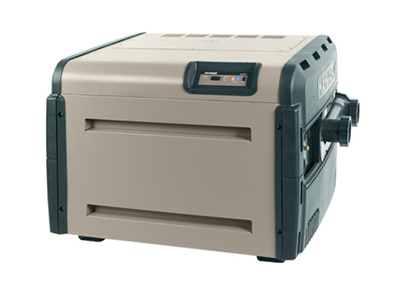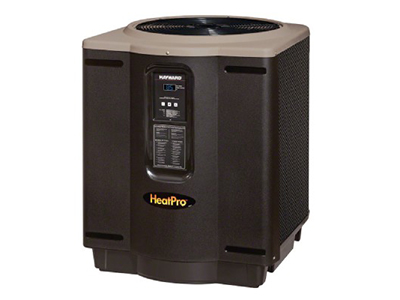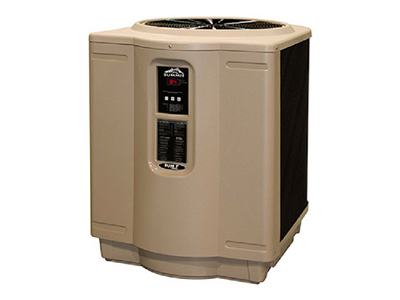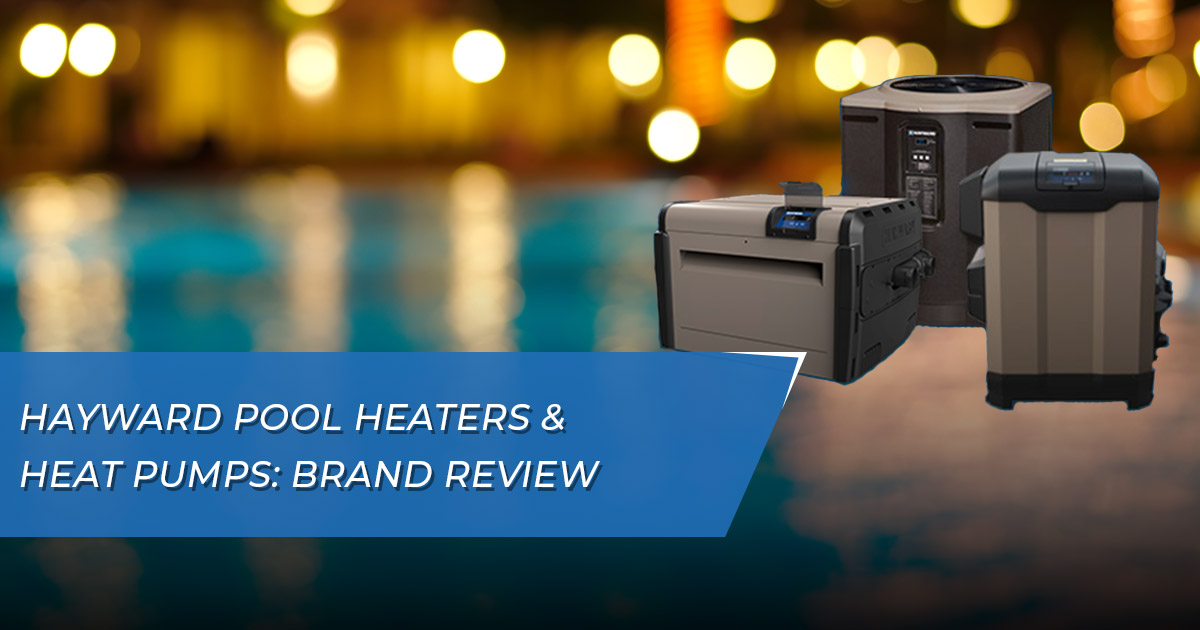Hayward Pool Heaters & Heat Pumps: Brand Review
Truly, one of the great things about owning a pool is the freedom that comes with being able to head outside and take a dip any time that you’d like. Yet at the same time, even in a place like Florida, sometimes that pool water temperature can be a bit on the chilly side.
When those days arrive, you don’t have to let them get you down. This is why equipment like a pool heater or a pool heat pump is so important.
When it comes to these types of products, Hayward model pool heaters and heat pumps are among the best available on the market today. But how do you determine which type is right for you? How do you make sure you’re investing in a piece of equipment that will actually keep your pool temperature where you want it without putting undue stress on your wallet at the same time?
The answers to those questions are luckily straightforward, but they do require you to keep a few key things in mind.
Related Article: 4 Swimming Pool Heater Options To Enjoy Swimming All Year
Pool Heaters vs. Heat Pumps: An Overview
But first, there is an important distinction that must be made. While pool heaters and pool pumps have similar goals, they operate in very different ways. Because of that, the two terms cannot be used interchangeably.
Pool heaters are typically powered by propane or a similar type of fuel source. They heat the pool water directly and, as a result, can do so faster than other methods. Pool heaters are typically used in situations in which you want to maintain a consistent water temperature, regardless of the larger environment around you.
A heat pump, on the other hand, maintains the temperature of your water by extracting heat from the surrounding air. It’s a bit slower than using a traditional pool heater, but it does bring with it a number of benefits. For starters, after the initial equipment has been purchased, it tends to be more cost-effective to operate. You don’t have to worry about the fluctuating price of gas or electricity, for example. Because of their design, they tend to be more environmentally friendly as well.
The only major downside is that you are largely beholden to the temperature around you when you use a pool heat pump. The air would need to be approximately 45 degrees or higher for the best results.
Thankfully, regardless of which method you choose, Hayward offers a number of high-quality options that will have your pool water at the perfect temperature whenever you need it.
Related Article: Gas Heater vs Electric Heater: Which is Right For You?
Hayward Pool Heaters – Universal H Series
 Hayward’s Universal H Series of pool heaters are, as is common with many products in this category, powered by natural gas. They’re designed for the fast and efficient heating of water in in-ground pools on your property.
Hayward’s Universal H Series of pool heaters are, as is common with many products in this category, powered by natural gas. They’re designed for the fast and efficient heating of water in in-ground pools on your property.
One of the major elements that separate Hayward Universal H Series pool heaters from many competing brands has to do with their cupro-nickel heat exchanger. This is made from both copper and nickel and is a big part of how the equipment is able to operate so efficiently in the first place.
Note that a high-quality heat exchanger is always important, particularly when it comes to long-term use. Issues with water chemistry and other imbalances can introduce corrosive chemicals to a pool heater, ultimately harming its ability to operate and requiring more in maintenance than should be necessary. An option like the cupro-nickel heat exchanger, which is a standard feature on Hayward pool heaters, goes a long way toward preventing precisely that.
Note that because Hayward pool heaters are also naturally resistant to things like corrosion, they’re ideal for areas like Florida that are very close to the ocean.
Most Hayward pool heaters also come with a few different operational modes that you can choose, depending on what you need. “Standby Mode,” for example, is used when the pool heater isn’t actually heating the water. If you choose to use it in “Spa Mode,” the pool heater will maintain a consistent temperature that you specify for the water while in operation. If you choose “Pool Mode,” the pool heater will always keep the pool temperature at whatever temperature you specify. This could result in it turning itself off until the water temperature drops, which will automatically turn itself back on again.
As is true with most other pool heater manufacturers, Hayward offers a number of models, and finding the one that meets your pool size is a key to success. As of 2022, there are seven different models with power outputs ranging from 150,000 BTUs all the way up to 500,000 BTUs.
To determine the BTU requirements for your own pool, you’ll want to start by measuring the surface area. Find the pool’s length and multiply it by the width. The number that you get will be measured in square feet. So a pool that is 15 feet by 30 feet would have a surface area of 450 square feet.
Then, divide that number by 3 and multiply the result that you get by 100. When added, 15 feet by 30 feet equals 450 square feet, which, when divided by 3, gives you 150. That number multiplied by 100 is 150,000, which is the recommended power output in BTUs that you would want to look for when purchasing any kind of pool heating equipment or related accessories.
The power output of the Hayward pool heater you select will also impact the unit’s overall size. Sizes range from 21 inches in width all the way up to 41 inches in width. Regardless, these are compact options that will work well in just about any environment that you’re working with while still looking visually pleasing at the same time.
Hayward Pool Heaters – HeatPro Heat Pump
 On the subject of heat pumps, Hayward also offers the HeatPro Series of pumps that have historically been a hit for homeowners everywhere.
On the subject of heat pumps, Hayward also offers the HeatPro Series of pumps that have historically been a hit for homeowners everywhere.
Due to the nature of how heat pumps operate when compared to standard pool heaters, the Hayward HeatPro Series is a great choice for people who use their swimming pool on a daily basis. They offer efficient heating and quiet operation, although again, it will take a bit longer to get your water to the desired temperature than it would with a regular pool heater.
The major benefit that the Hayward HeatPro Series brings with it is cost-effectiveness. These units run on electricity and offer high energy efficiency with low long-term operating costs.
All models in the HeatPro Series have the company’s famous corrosion-resistant evaporator fin, which again makes it a perfect selection for regions like Florida that are close to large natural bodies of water. The included titanium heat exchanger helps maintain consistent temperatures during operation, and the high-quality scroll compressor makes sure that your heat pump will still operate reliably even when the conditions start getting hot outside. Even when exposed to high winds, for example, the Hayward HeatPro Series will still have you covered.
As is true with the aforementioned pool heaters, the Hayward HeatPro Series comes in a few different sizes for you to choose from based on the dimensions of the pool you’re working with. Here, you can get a model that goes all the way up to 140,000 BTUs. It can also reach a high COP of 6.
One important thing to keep in mind is that because the HeatPro Series does operate on electricity, you may have to hire an electrician to come out to your home for installation if you don’t already have a dedicated electrical circuit in the area. This could add to the overall initial costs, although you’ll likely make up a lot of that over the lifetime of your pool usage.
Hayward heat pumps like the HeatPro Series are also known for requiring less maintenance than competing brands. Because there is no natural gas fuel source present, they’re also inherently safer to operate, which means you don’t have to worry about leaking gas, possible combustion, or other issues.
Hayward Pool Heaters – Summit XL
 Finally, we arrive at the Summit XL, a heat pump that is a reliable, efficient addition to the Hayward product line. These units are known for their quiet operation, making them perfect for heating your backyard pool without any distracting noise to worry about.
Finally, we arrive at the Summit XL, a heat pump that is a reliable, efficient addition to the Hayward product line. These units are known for their quiet operation, making them perfect for heating your backyard pool without any distracting noise to worry about.
They, too, offer features like the titanium condenser and corrosion-resistant evaporator, both of which go a long way toward guaranteeing reliability for years to come.
The Summit XL line comes in two different models, with the power output considered the major difference. The smaller of the two units offers 112,000 BTUs of power, while the larger goes all the way up to 140,000 BTUs. They both come in the same form factor of 30.25 inches by 34 inches by 44 inches, so you don’t have to worry about the footprint changing in any significant way if you opt for the larger option. They also both have 50 circuit amps during operation as well and a COP of 5.7.
These particular units work well with both large in-ground pools and spas, as well as any combination environment that you may have. Because of their corrosion resistance, they even work well with saltwater systems.
Regardless, they’re an efficient way to heat your pool in an environmentally friendly and energy-efficient way, allowing you to relax and rest easy knowing that you’ll always have that perfect pool temperature whenever you want it.
Note that as per Hayward’s own official documentation, the Summit XL heat pump is ideal for both residential and commercial swimming pools and spas.
Hayward Heaters: A Brand You Can Trust
As mentioned, Hayward is a brand known for its high-quality products, and that extends to both its pool heater and heat pump equipment lines. Of course, that demands the question: Do you go with a pool heater or invest in a heat pump alternative? The answer is a resounding “it depends.”
The main advantage of a heat pump, in addition to maintaining an ideal water temperature, will always involve cost reduction. They’re a bit more expensive initially, but you will save money over time. If you’re willing to wait a bit longer to get that water temperature just right, a heat pump is likely an ideal choice for you.
If you’re looking for something powered by natural gas (or if you don’t want to or can’t have an electrical line installed in your backyard), a pool heater is likely the way to go. This is especially true if you want your pool water temperature to quickly get to the exact point you want.
For the absolute best pool experience, some people choose to combine these two technologies. They’ll use a heat pump for the majority of the time thanks to the lower cost of operation and higher energy efficiency, while they’ll use the heat pump when they need fast temperature regulation or if the temperature drops sharply outside. This may be an option that you want to explore depending on your preferences.
Regardless, over the years, Hayward has become a name in the industry that is synonymous with quality, so whichever option you choose will certainly help get the job done.
Related Article: Pool Heat Pumps: The Pros and Cons of This Type of Heater
The Heating Experts at GPS Pools Are Here to Help
The team at GPS Pools is proud to offer high-quality Hayward pool heaters, Hayward heat pumps, and similar solutions to customers. With our robust inventory, technical expertise, and passion for all things pool-related, we help people enjoy all the benefits of owning a swimming pool with as few potential downsides as possible. If you’re curious as to which of the various pool heaters you should purchase, or have questions about all of our pool heating services please contact us at one of our locations in New Tampa, Land O’Lakes, or Lutz.

